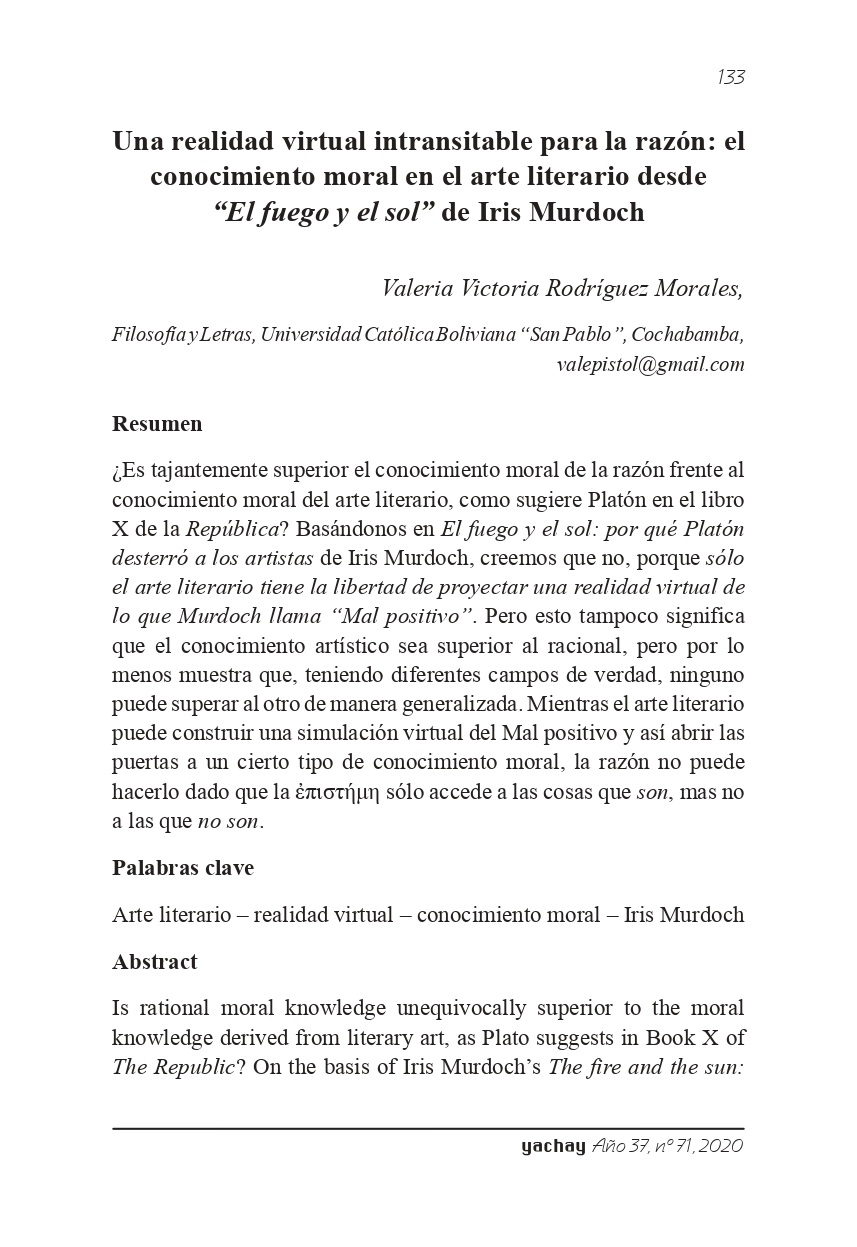Virtual reality impassable to reason: moral knowledge in literary art from Iris Murdoch’s The fire and the sun
DOI:
https://doi.org/10.35319/yachay.20207118Keywords:
Literary art, virtual reality, moral knowledge, Iris MurdochAbstract
Is rational moral knowledge unequivocally superior to the moral
knowledge derived from literary art, as Plato suggests in Book X of
The Republic? On the basis of Iris Murdoch’s The fire and the sun:
why Plato banished the artists, we believe this not to be the case,
as only literary art has the freedom to project a virtual reality of
what Murdoch calls “positive evil”. This does not mean that artistic
knowledge is superior to rational knowledge, but at least it shows that,
because they move in different fields of truth, one cannot overcome
the other in a general way. While literary art can construct a virtual
simulation of positive evil and thus open the doors to a certain type of
moral knowledge, reason cannot do this given that the ἐπιστήμη can
only access what is, not what is not.
Downloads

Downloads
Published
How to Cite
Issue
Section
License
Copyright (c) 2020 Revista Yachay

This work is licensed under a Creative Commons Attribution-NonCommercial 4.0 International License.
De acuerdo a la Ley 1322 de Derechos de Autor en Bolivia, la Revista YACHAY respeta los derechos morales de los autores, amparando la parternidad e integridad de sus obras publicadas.




